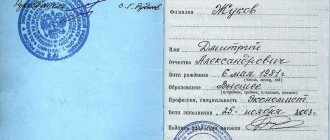If the employer interferes with work...
Litigation regarding compensation to an employee for material damage caused by illegal deprivation of his opportunity to work.
One of the grounds for holding an employer financially liable to an employee is the infliction of material damage to the employee as a result of illegal deprivation of his opportunity to work (Article 234 of the Labor Code). An employer can cause damage if it illegally removes an employee from work, dismisses him or transfers him to another job, fails to reinstate the employee to work if there is such an obligation (established by a court or other authorized body) or fails to issue a properly completed work book in a timely manner.
It should be noted that the mere commission by the employer of the listed illegal actions does not entail the obligation to pay the employee any monetary compensation. A necessary condition for the onset of liability is the inability of the employee to work, which entails material damage for the latter.
The courts have repeatedly considered workers' claims based on the rules contained in Article 234 of the Labor Code. However, as an analysis of judicial practice shows, it happens that the plaintiff abuses his rights established by the Labor Code of the Russian Federation. But, turning to the logic of the legislator, the court may resolve such cases not in favor of the employee.
Compensation should not be paid if the employee was hired for a new job despite violations committed by the employer.
In the case under consideration, the employer was indeed wrong: on his part, there was a violation of the norm of the Labor Code of the Russian Federation on the need to issue the employee a work book on the day of dismissal. However, the lack of a work book did not prevent the plaintiff from getting a new job by presenting a different work book. Thus, having a place of work and receiving wages, the plaintiff tried to obtain compensation for non-existent material damage from his previous employer in court, which he was denied by the court (Determination of the Primorsky Regional Court dated 06/08/2011 in case No. 33-5143).
Almost similar circumstances were considered by the Moscow City Court (Determination dated April 28, 2011 in case No. 33-12989). Unlike the plaintiff in the previous case, in this case the plaintiff, despite not having a work book, managed to get a job in several companies simultaneously by concluding part-time employment contracts. In court, she appealed to the fact that, due to the fault of her previous employer, she was unable to work full-time, and therefore suffered material damage. This claim was denied, since the actions of the defendant, expressed in the delay in issuing the work book, did not entail the deprivation of the plaintiff’s opportunity to work and receive wages.
To bring an employer to financial liability under Article 234 of the Labor Code of the Russian Federation, it is necessary to prove a cause-and-effect relationship between the offense he committed and the material damage to the employee.
The employer fired the employee under a “bad” article - for repeated failure to fulfill job duties without good reason, if he has a disciplinary sanction (clause 5 of part 1 of Article 81 of the Labor Code of the Russian Federation). In court, the entry in the work book about the grounds for dismissal was changed to dismissal at will.
The plaintiff stated that he could not get a job precisely because there was an illegal entry in his work book. However, he could not prove the connection between the entry in the work book and the refusal to hire; in the certificates he provided from failed employers, the reasons for the refusal to hire were listed as completely different. Taking this into account, the court refused to satisfy the plaintiff’s request for payment of compensation for material damage (Determination of the St. Petersburg City Court dated April 4, 2011 No. 33-4687/2011).
An analysis of this court case also allows us to conclude that an employee who has not tried to get another job has an extremely low chance of receiving the above-mentioned compensation from the employer. Responsibility under Article 234 of the Labor Code of the Russian Federation arises only if an employee interferes with the exercise of his right to work (recall that this right is guaranteed by the Constitution of the Russian Federation of 1993), thus, if the employee did not try to exercise his right, he will not have the opportunity to prove that the employer is exercising prevented this right.
An example of such a case is the Determination of the St. Petersburg City Court dated October 4, 2011 No. 33-14974/2011. The claims sought compensation for material damage caused by the delay in issuing the work book due to the fault of the employer. At the initial consideration, the court refused to satisfy this requirement, however, with the above-mentioned Determination, the court noted the need to consider the question of whether the delay in issuing a work book prevented further employment, and whether these unlawful actions of the employer actually caused material damage to the employee. A prerequisite for holding an employer liable is the presence of proven guilt.
The plaintiff (employee) filed a claim with the court to recover lost profits from the employer in the amount of the earnings he did not receive. He did not receive a visa to enter the country in which his place of work was located in accordance with the employment contract in a timely manner, as a result of which he was unable to arrive at his workplace. The work was not completed by him, and accordingly, he was not paid.
According to Article 233 of the Labor Code of the Russian Federation, financial liability of a party to an employment contract occurs for damage caused by it to the other party to this contract as a result of its culpable unlawful behavior (actions or inaction), unless otherwise provided by the Labor Code of the Russian Federation or other federal laws. Consequently, like any other legal liability, financial liability can occur only if certain conditions are met. In accordance with Article 233 of the Labor Code of the Russian Federation, the conditions for the onset of material liability of the parties to an employment contract are the presence of property damage to the injured party; illegality of the action (inaction) that caused the damage; causal connection between the unlawful act and material damage; the fault of the violator of the employment contract. Bringing a party to an employment contract to financial liability is possible only if all the above conditions are present simultaneously, unless otherwise provided by the Labor Code of the Russian Federation or other federal laws.
Thus, the financial liability of the parties to an employment contract is one of the types of legal liability; it consists of the obligation to compensate for real property damage caused to the other party and occurs subject to the presence of grounds and conditions to the extent established in labor legislation.
During the trial, the court found that the visa was not obtained by the employee for reasons beyond the control of the employer, therefore, the defendant was not guilty of causing the plaintiff to lose profits. The employee’s claims were denied (Decision of the Perm Regional Court dated March 16, 2011 in case No. 33-2321).
Compensation for material damage caused by late issuance of a work book will be payment for forced absenteeism, and not compensation for lost profits due to failed employment.
This question is fundamental when calculating the amount to be paid to an employee whose rights have been violated. Thus, lost profits would be calculated based on the amount of wages that the employee could have received upon starting work for a new employer. But labor legislation does not provide an employee with the opportunity to appeal to the employer to claim compensation for lost profits. At the same time, there is a certain rule that prescribes that a delay in issuing a work book should be considered forced absenteeism - this follows from the meaning of paragraph 4 of clause 35 of the Rules for maintaining and storing work books, producing work book forms and providing them to employers (approved by Decree of the Government of the Russian Federation of April 16, 2003 No. 225). According to this norm, if the employer delays issuing the work book due to termination of the employment contract, the day of dismissal should be considered the actual day of issue of the work book. Thus, the time from the moment of dismissal (when the work book was not issued) until the moment the work book is issued is forced absenteeism (since the employee is considered not to have been dismissed in the initial period, but he did not work).
In support of these conclusions, one can cite a case considered by the Perm Regional Court. Satisfying the claims of V-voy and collecting money from LLC “N” in its favor, the magistrate came to the conclusion that the plaintiff suffered material damage in the form of earnings she did not receive in connection with the illegal deprivation of the opportunity to work caused by the delay in issuing work book. At the same time, in collecting damages in favor of the plaintiff, the court proceeded from the wages that she could have received from the individual entrepreneur K-va, who refused to hire the plaintiff due to her lack of a work book. When reviewing this case in the cassation instance, the court came to the conclusion that the initially collected amounts, in essence, are lost profits, which cannot be recovered in accordance with the norms of the Labor Code of the Russian Federation and within the framework of the labor relations between LLC “N” and the plaintiff.
As a generalization of the above examples of court decisions, we can conclude that labor legislation provides employees with a fairly wide range of rights and guarantees, protecting their interests even to a greater extent than the interests of employers. However, a literal interpretation and application of certain labor law norms is impossible without taking into account other norms established by law. If the plaintiff appeals to one norm while ignoring the others, he may not take into account the logic that guided the legislator in establishing these norms. This problem is usually solved by the court, taking into account both the norms on which the plaintiff’s claims are based and other provisions of legal acts. Only such a comprehensive consideration of the case can contribute to the adoption of the only correct decision by the court.
Resolution No. 44-g-917 dated July 27, 2007, Review of the cassation and supervisory practice of the Perm Regional Court in civil cases for 2007 (prepared by the Perm Regional Court on February 7, 2008).
What to do if your employer cannot provide work due to the coronavirus epidemic
If a situation arises that we cannot provide the employee with work, for example, due to epidemics, the shopping center where the employee performed his job function was temporarily closed (the shopping center does not belong to the employer). In this case, if it is impossible to transfer the employee to another job, a downtime is issued.
DOWNTIME REGISTRATION
1/ The Labor Code of the Russian Federation distinguishes three types of downtime: due to the fault of the employer, for reasons beyond the control of the employer and employee, and due to the fault of the employee. Depending on the type of downtime, the Labor Code of the Russian Federation provides for different amounts of payment for downtime. In our case - 2/3 of the tariff rate, salary, in proportion to downtime (Article 175 of the Labor Code of the Russian Federation).
2 It is advisable to issue a simple order, which should contain:
- start and end dates of downtime. Now we can hardly predict the end of the downtime, therefore, we can indicate the event upon the occurrence of which the downtime ends (the Labor Code of the Russian Federation does not establish a deadline for its introduction);
- the reason for the downtime, i.e. we indicate and describe the specific circumstances that led to the downtime, in the case under consideration - in connection with the closure of the XXX shopping center in which our store was located;
- through whose fault the downtime occurred (the employer, the employee, or for reasons beyond the control of the parties);
- position (profession), full name employees and names of structural units in respect of which downtime is declared;
- the amount of payment for downtime with reference to the norms of the Labor Code of the Russian Federation;
- the need for the presence at the workplace of workers for whom downtime or permission not to go to work is declared (indicating specific full names, positions (professions), structural divisions, if the conditions of the workers are different).
The Labor Code of the Russian Federation does not oblige workers to be present at their workplaces during downtime. The downtime period refers to working time (Part 1 of Article 91 of the Labor Code of the Russian Federation), and not to rest time (Article 107 of the Labor Code of the Russian Federation), therefore employees cannot use it at their own discretion and leave their workplaces without the permission of the employer;
- if the employee will not be at the workplace, should he be in touch and/or be within transport accessibility;
- how employees will be informed about the end of the downtime.
I DO NOT RECOMMEND:
- send employees on leave without pay or on annual paid leave not according to the vacation schedule, unless they themselves have asked for it;
- dismiss an employee from work without registering his absence in any way.
Irina Sokhatskaya






